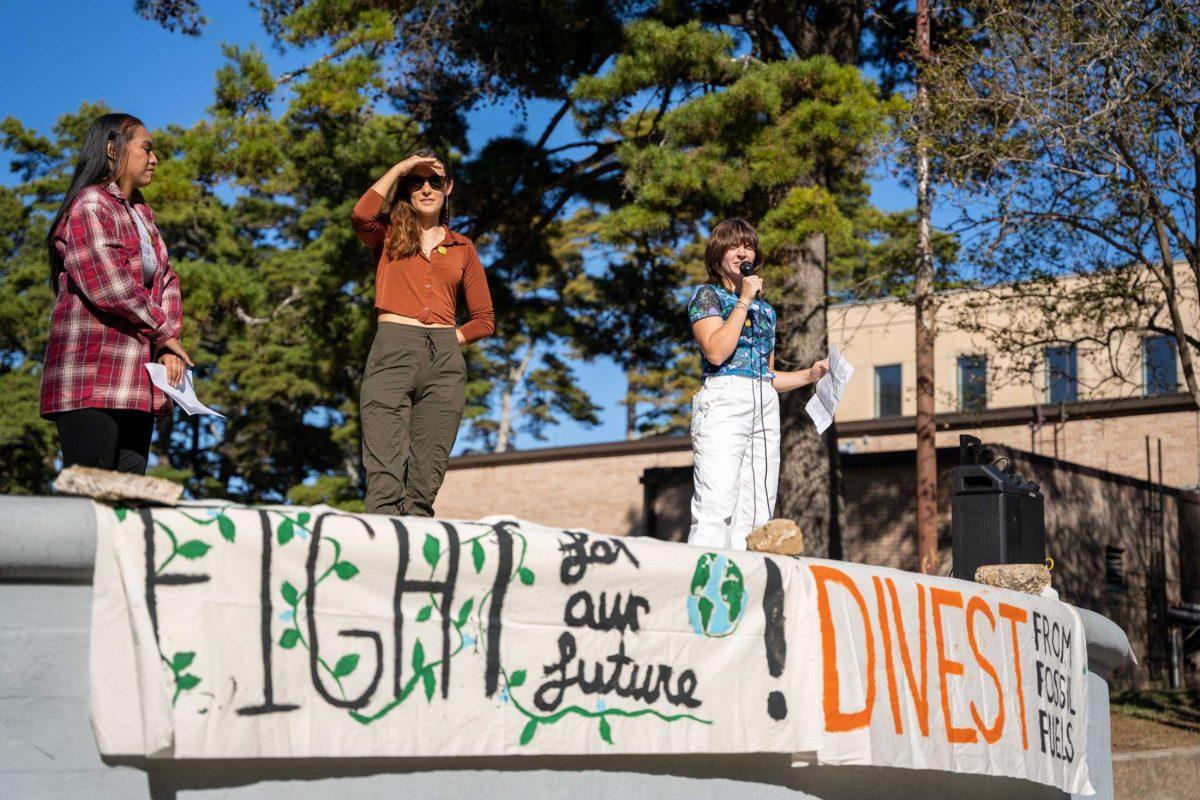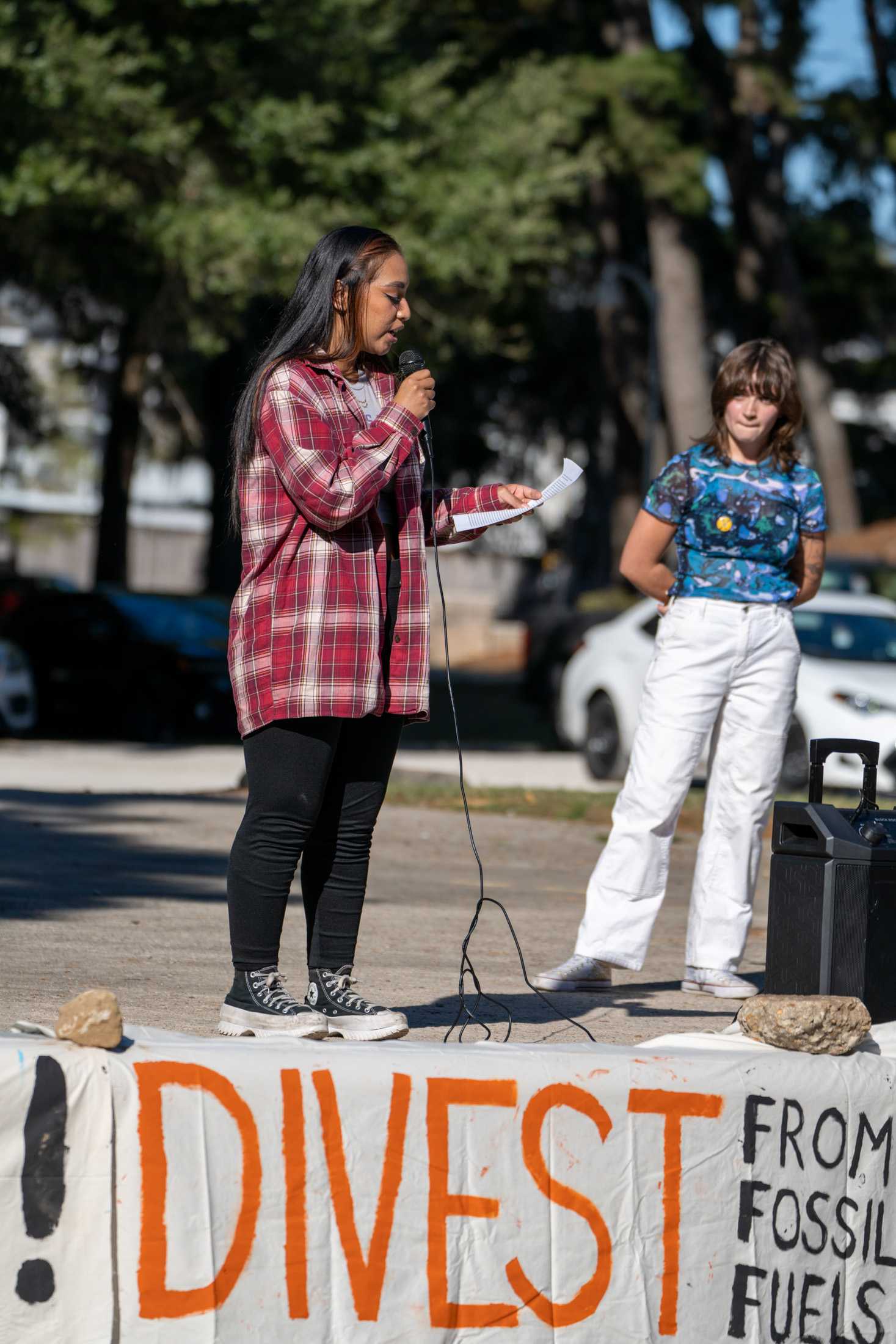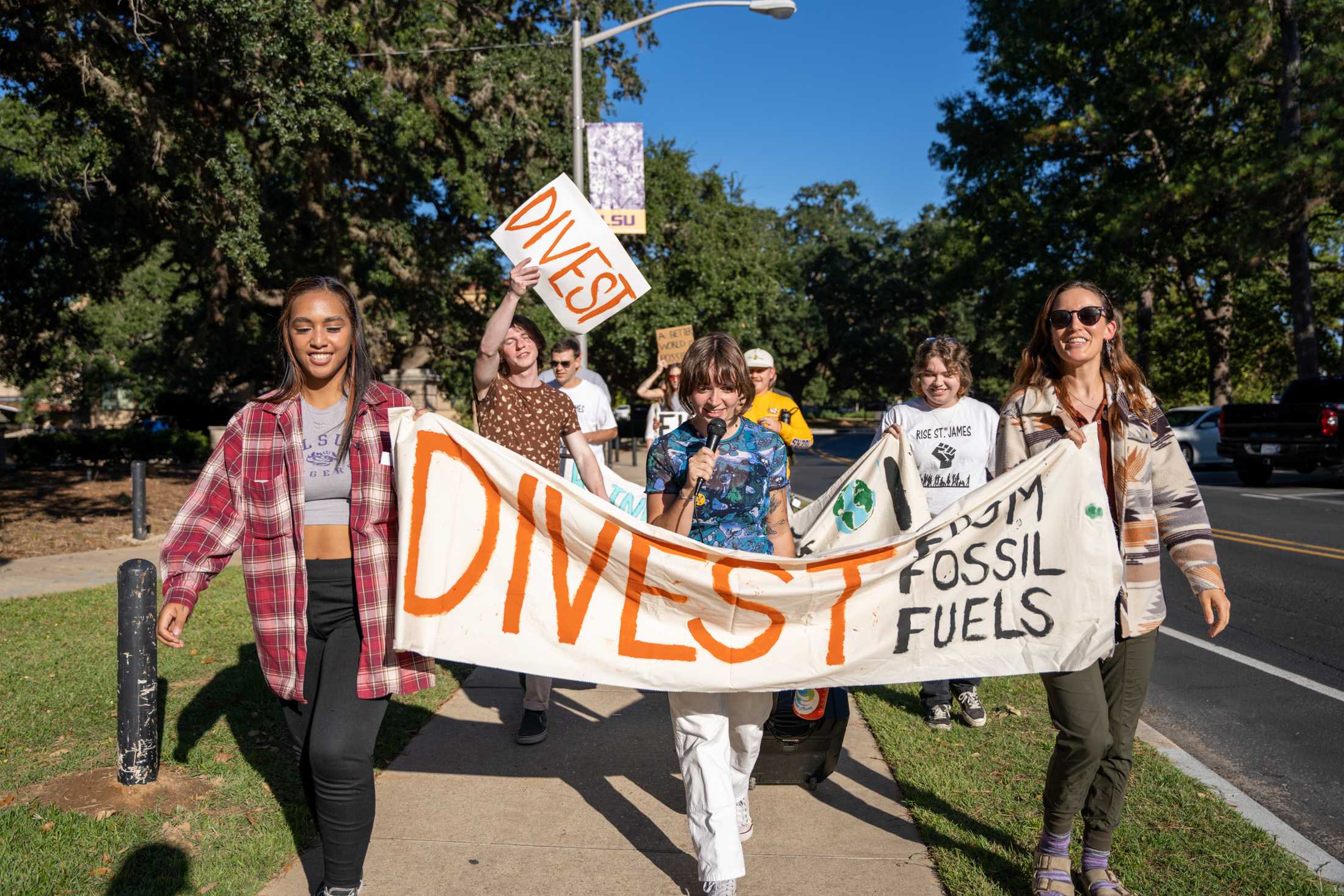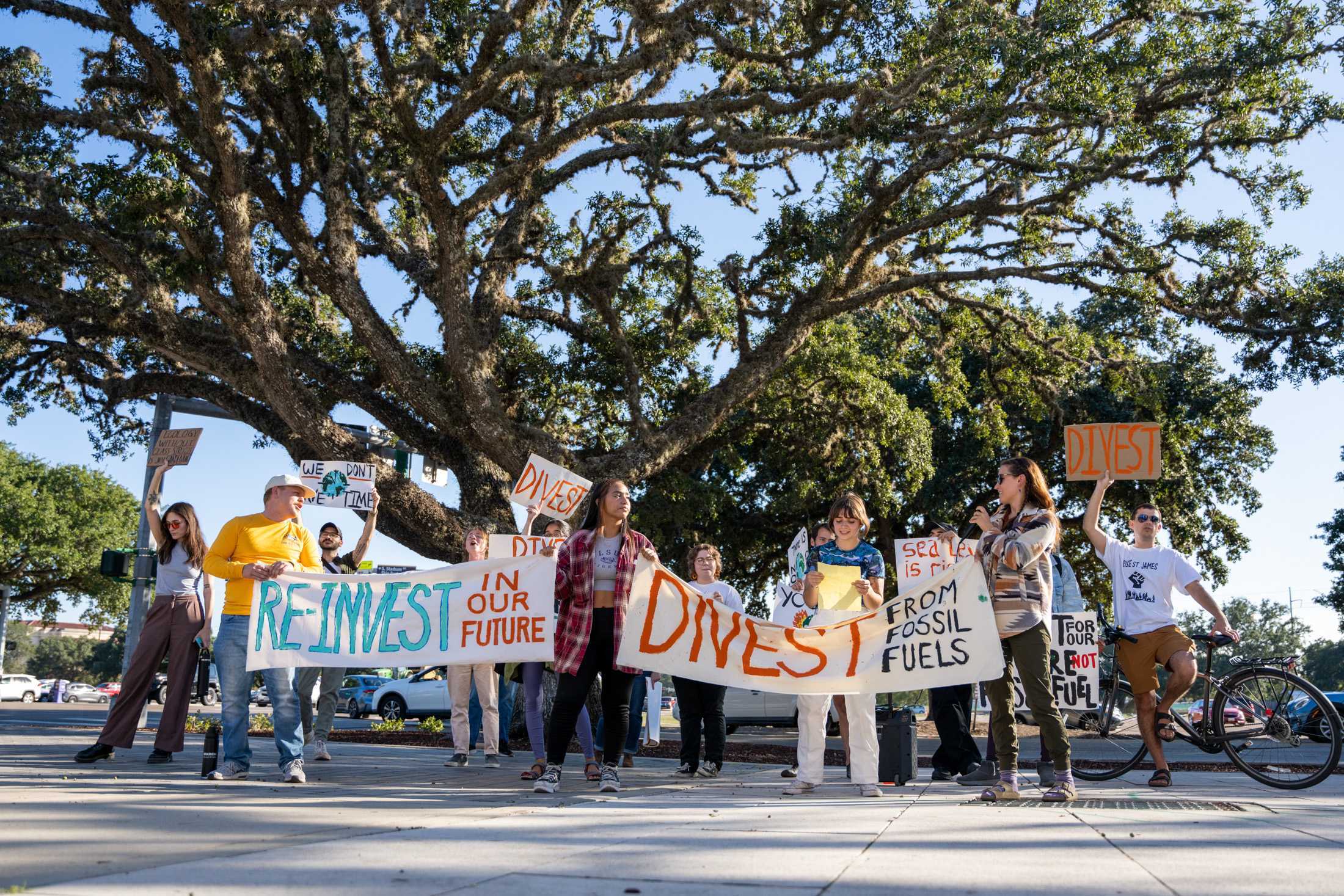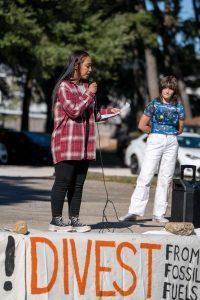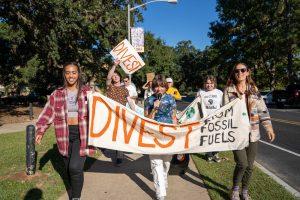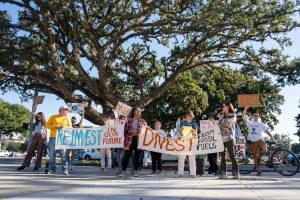LSU students rallied for climate action and called for the university to divest from fossil fuels on Friday, draping the Greek Theater in colorful banners before marching to the LSU Foundation building.
It was the culmination of the second annual Climate Week, a series of events hosted by Geaux Planet and Climate Pelicans to advocate for movement on climate change.
READ MORE: Laptop Orchestra of Louisiana concert unfolds with electronics, rocks and other non-instruments
The rally continued last year’s theme of divestment, encouraging people and institutions like LSU to stop investing in fossil fuel companies. Signs reading “Divest,” “Divest From Fossil Fuels” and “Geaux Fossil Fuel Free, I’m Sorry, it’s not that hard” lined the crowd to support the message.
“These companies not only light the fire under our planet without apology, but they have set up their facilities specifically in Louisiana, extracting our natural resources for profit, destroying our land and sickening our residents,” said Jill Tupitza, an oceanography doctoraral candidate and the divestment campaign organizer for Climate Pelicans, at the rally.
“Divestment is incredibly effective,” Tupitza said. “This movement, which has garnered most support on college campuses since 2012, has been cited by multiple fossil fuel companies as restricting their ability to operate and expand. Shell even had to cancel an arctic drilling project because of it.”
The rally came after days of other events aimed at climate action. The week kicked off Tuesday with banner-making on the Parade Ground, producing three banners reading “Re-invest in our future,” “Divest from fossil fuels” and “Fight For Our Future.” All three ended up on display at the final rally.
Wednesday saw an open mic night held at Highland Coffees from 7-10 p.m. The themes were “Nature Appreciation, Climate Change, and Environmental Justice.”
At Friday’s rally, environmental justice researcher and scientist Corinne Salter focused on the impact climate change has on marginalized communities and how they believe college students have the ability to aid and educate these communities.
Salter began with a quote from famed author Toni Morrison: “Your real job is that if you are free, you need to free somebody else. If you have some power, then your job is to empower somebody else.”
“As LSU students, who are literally living right next door to some of the most marginalized communities, we have this unique opportunity to use our education and our liberation to liberate others who are not as fortunate to have the same opportunities,” Salter said, adding, “We have a duty to our neighbors to help liberate them. When we find our ways in the dark using our science and critical thinking, do we leave others in the dark to stumble and struggle?”
Adam Dohrenwend, a geography doctoral candidate, also spoke at the rally. He was a representative from Rise St. James, a faith-based environmental justice organization based in the heart of Cancer Alley, an 85-mile stretch along the Mississippi River between Baton Rouge and New Orleans responsible for some of the highest cancer rates in the country due to high emissions from petrochemical companies.
Rise St. James launched in response to petrochemical company Formosa trying to build a new factory in St. James Parish, Dohrenwend said.
“[Founder Sharon Levigne] had about 10 people at the first meeting in her living room,” Dohrenwend said. “They kept meeting and over the last couple of years, they won several court battles against Formosa.”
Rise St. James blocked the building of factories from Formosa, South Louisiana Methanol and the Wanhua Plastics Company in Cancer Alley. Dohrenwend said Formosa will try to appeal these blocks at 9 a.m. on Nov. 7 at the Louisiana First Circuit Court of Appeals in Baton Rouge.
LSU assistant professor Cheryl Harrison, who works in the Department of Ocean and Coastal Science and the Center for Computation and Technology, said she was at the event with two hats on.
“First hat is climate scientist,” she said. “Second hat is just as a person who cares about the world, like you all.”
She went on to describe climate model projections indicating that the only way to avoid major climate tipping points, such as the melting of ice in Greenland and Antarctica, is to dramatically reduce the amount of carbon dioxide in the atmosphere. Harrison was brought to tears speaking on the matter.
“We can’t wait. We can’t wait for our governance systems to figure it out. We can’t for our economic systems,” Harrison said in her speech. “And that’s the role of people like us here. We need to shout and say this needs to stop because we’re all gonna die.”
After the speeches, the attendees marched together from the Greek Theater to the LSU Foundation building to push for fossil fuel divestment. The group yelled out chants like “Fossil fuel or fossil free, think about our legacy,” “Can’t eat money, can’t drink oil, leave our carbon in the soil,” “Divest, divest, it’s in our interest,” and “Climate change is not a lie! Do not let our planet die!”
Geaux Planet works on many other projects along with its annual Climate March. The organization holds events like “Bike on the Levee” and nature walks, and it highlights people in the LSU community and Louisiana with “Speaker Spotlights” and “Treehugger Tuesdays.”
The next climate march is likely to take place in November 2024. Tupitza believes organizing like this can make change.
“If we can make some noise, hold up some signs, and send a clear message to the LSU Foundation’s administration that this is important to us, we can direct tens of millions of dollars away from fossil fuel companies and into something more socially responsible,” Tupitza said.



